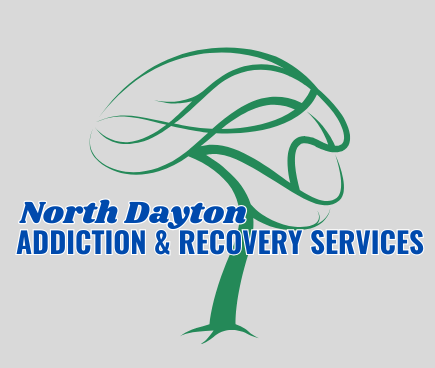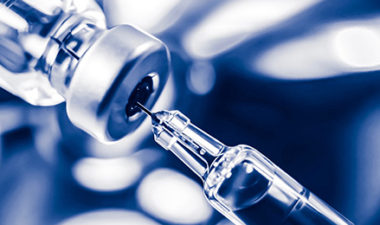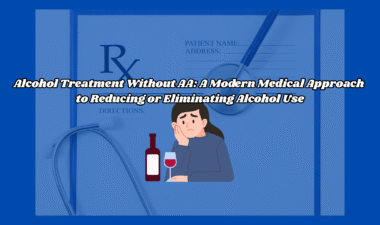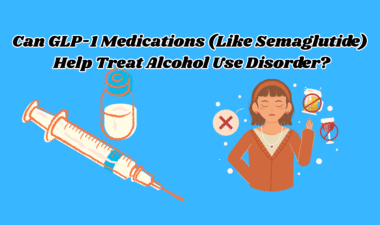Medications That Help You Stop Drinking Alcohol

Naltrexone, Semaglutide (GLP-1, Ozempic/ Wegovy), and More
Paul Kolodzik, MD, FACEP, FASAM
Board-Certified in Addiction Medicine and Emergency Medicine
Medical Director, North Dayton Addiction and Recovery
Serving Ohio, Indiana, Florida, and Arizona via Telemedicine
How to Stop Drinking with Medication: A Modern, Evidence-Based Approach
If you’re trying to stop drinking alcohol, reduce binge drinking, or break free from daily cravings, you’re not alone. Many people are now turning to medication-assisted treatment (MAT)—an approach shown to be more effective and longer lasting than traditional rehab or AA alone.
At North Dayton Addiction and Recovery, we specialize in telemedicine-based treatment for alcohol use disorder (AUD) using FDA-approved and clinically supported medications. Our most successful regimen includes naltrexone alone, or naltrexone in combination with semaglutide (Ozempic or Wegovy)—a GLP-1 medication—when medically appropriate.
The Best Medications for Alcohol Use Disorder

🧠 Naltrexone: The Gold Standard for Alcohol Cravings
Naltrexone is a proven, effective medication that reduces alcohol cravings by blocking opioid receptors in the brain. By disrupting alcohol’s “reward effect,” it weakens the reinforcement loop that drives heavy or habitual drinking.
One evidence-based strategy we frequently use is The Sinclair Method—taking naltrexone only before drinking. Over time, this helps retrain the brain, making alcohol feel less rewarding and reducing the desire to drink.
We use naltrexone as a first-line treatment and often combine it with semaglutide for enhanced results, particularly in patients who also struggle with binge drinking or emotional eating.
💉 Semaglutide (Ozempic, Wegovy): A GLP-1 Breakthrough for Alcohol Cravings
Semaglutide is a GLP-1 receptor agonist, originally developed for diabetes and weight loss. However, it also dampens the brain’s reward response to alcohol, reducing both physical cravings and compulsive use.
We prescribe semaglutide to patients with alcohol use disorder, especially binge drinkers, and if the patient is overweight meeting FDA criteria for treatment. When combined with naltrexone, it forms a powerful treatment duo that supports sustained reduction or cessation of alcohol use.
Why Medication Beats Traditional Alcohol Rehab
Medication-assisted treatment (MAT) is science-driven, discreet, and effective. In contrast, residential rehab often interrupts daily life and has high relapse rates after discharge.
Benefits of Medication-Based Treatment:
- No need for inpatient rehab or time off work
- Long-term relapse prevention with ongoing medication use
- Private, telemedicine-based care from your home
- Higher success rate than isolated behavioral therapy or abstinence-only models
At North Dayton Addiction and Recovery, we support our patients with a long-term medical plan, not a short-term detox.
Antabuse (Disulfiram): Rarely Used Today
Antabuse (disulfiram) was once a common alcohol deterrent. It causes an intense, unpleasant reaction if alcohol is consumed while the medication is in the system. However, it does not reduce cravings and relies solely on punishment-based deterrence.
In modern practice, Antabuse is rarely used. Most patients benefit more from medications like naltrexone and semaglutide, which target the brain’s underlying craving mechanisms.
Our Preferred Treatment Regimen
At North Dayton Addiction and Recovery, we customize care to each patient—but consistently recommend:
✅ Naltrexone Alone or in Combination with Semaglutide
- First-line option for most patients
- Safe, well-tolerated, and supported by evidence
- Addresses both psychological and physical cravings
- Allows treatment without inpatient rehab
- Effective for both alcohol use reduction (harm reduction) and abstinence
We tailor the plan based on:
- Your drinking goals (moderation vs. abstinence)
- Your weight and metabolic profile
- Prior response to medications or therapy
Frequently Asked Questions
What is the best medication to stop drinking alcohol?
We recommend naltrexone, either on its own or combined with semaglutide (Ozempic or Wegovy), depending on your health profile and treatment goals.
Can semaglutide help reduce alcohol cravings?

Yes. Though used off-label, semaglutide (a GLP-1 medication) has shown promise in reducing the urge to drink—especially in those who binge or use alcohol to cope with cravings.
What is the Sinclair Method?
The Sinclair Method involves taking naltrexone only before drinking. This method gradually retrains the brain to reduce the association between alcohol and reward—often leading to less drinking or complete abstinence.
Can I get this treatment through telemedicine?
Yes. We treat patients via secure telehealth across Ohio, Indiana, Florida, and Arizona. No in-person visits or rehab stays required.
Get Help Now with a Medication-Based Treatment Plan
At North Dayton Addiction & Recovery, Dr. Paul Kolodzik has helped hundreds of patients successfully reduce or eliminate alcohol use with a medication-based approach.
You don’t have to go to rehab or hit rock bottom to make a change. Whether you want to cut back or stop drinking entirely, we can help—with real medical treatment that works.
📍 Visit: NorthDaytonAddictionAndRecovery.com
📧 Email: info@northdaytonaddictionandrecovery.com
📞 Call: (937) 300-7882
North Dayton Addiction and Recovery
Helping patients reduce or quit drinking with safe, modern medication-based treatment
Serving Ohio, Indiana, Florida, and Arizona via telemedicine




